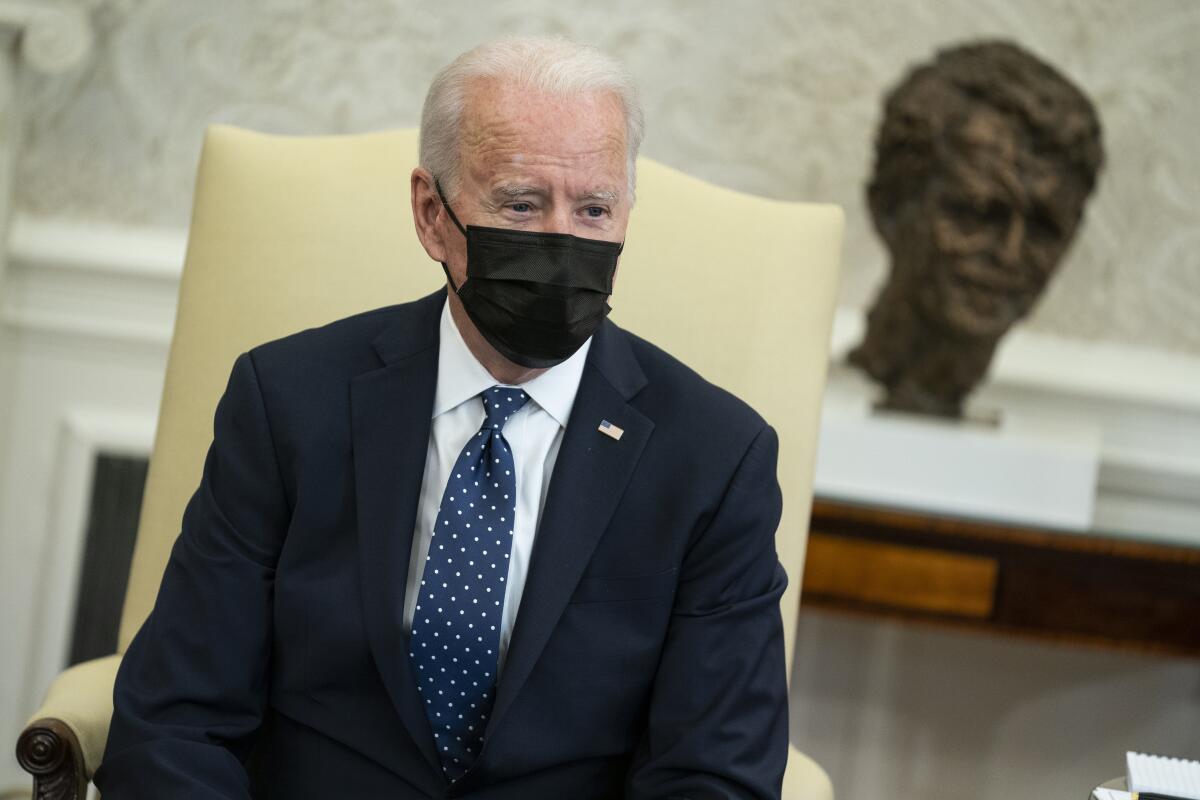Biden OKs more visas for seasonal workers as economy improves

- Share via
WASHINGTON — President Biden’s administration announced an increase Tuesday in the number of temporary seasonal workers who will be allowed to work in the U.S. this year as the nation’s economy recovers from the pandemic.
The Department of Homeland Security said the U.S. would approve an additional 22,000 H2-B seasonal worker visas on top of the annual limit of 66,000 set by Congress. It cited increased demand from employers, with the number of people seeking jobless benefits at the lowest point since the outbreak of COVID-19.
The H2-B visa program has bipartisan support in Congress and with businesses across the nation. It is used to fill jobs in such areas as landscaping, construction, hotels and restaurants as well as in seafood and meat processing plants and amusement parks.
Last year then-President Trump authorized an additional 35,000 H-2B visas above the annual cap. But three months later he halted the program along with other foreign worker programs under a sweeping executive order. Biden let the order expire.
Employers are required to attest that they are likely to suffer “irreparable harm” if they do not receive workers under the program.
In announcing this year’s annual supplemental increase, DHS said it would set aside 6,000 of the visas for people from the Northern Triangle countries of Honduras, El Salvador and Guatemala. Central Americans, struggling with the pandemic, the aftermath of two hurricanes and more long-standing problems, make up a major portion of the increasing number of migrants seeking to enter the U.S. along the Southwest border.
DHS Secretary Alejandro Mayorkas said the visas reflect the administration’s goal of “expanding lawful pathways for opportunity in the United States” for people from the Northern Triangle countries.
More to Read
Get the L.A. Times Politics newsletter
Deeply reported insights into legislation, politics and policy from Sacramento, Washington and beyond. In your inbox three times per week.
You may occasionally receive promotional content from the Los Angeles Times.










